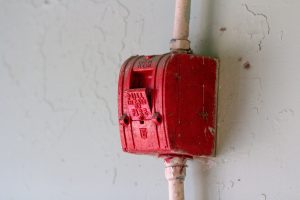
All technological equipment has a limited lifespan. This is the same for fire alarm systems. A fire alarm system is designed by the manufacturer to last between 10 and 15 years. This is dependent on the quality of the components. It’s also dependent on how well the fire alarm system has been maintained. However, beyond the end-of-life age of your fire alarms, they need to be replaced. This is because the reliability of the system will begin to decline. In turn, this will increase the risk of fire system malfunctions and false alarms.
In this blog post we share some of the many reasons that fire alarms should be replaced at their end-of-life age. Have a read and see what you think. If you have fire alarm systems in your property that are nearing their end-of-life age, contact our team to arrange fire alarm maintenance services and / or replacement.
- Ensure Reliability
Fire alarm systems are designed to provide early detection of fire and alert those within the building of the fire. However, as the years go on and the systems age, their components such as sensors, wiring and alerts can begin to deteriorate. This can and will lead to an unreliable performance from your fire alarm system.
- Stay Compliant
Building codes and regulations are being updated all the time. This is done to incorporate new safety standards. By replacing fire alarms that are at end-of-life age you will be ensuring that your building remains compliant with the latest safety riles and regulations. Not meeting these requirements could result in legal consequences and a hefty fine.
- Reduce False Alarms
Older fire alarm systems are more prone to false alarms. This is due to sensor malfunctions as well as the accumulation of dust or wiring issues. False alarms put a huge risk on those within the building because occupants and emergency services ignore or delay their response to the alert, presuming it is a false alarm again.
- Enhanced Technology
Technology is evolving all the time. This is just as true in the world of fire safety. A newer fire alarm system will use improved detection methods and faster communication capabilities. It is likely to integrate with other safety equipment within your business better too. All these things will result in increased effectiveness of the fire safety within your property.
- Reduced Maintenance Costs
As your fire alarm system gets older, more frequent maintenance and repairs is often required. This is just to keep the fire alarm operational. However, these repair and maintenance costs can soon add up. By replacing your older fire alarm system for a new one will be a more cost-effective solution as the newer model will be more reliable.
- Peace Of Mind
Perhaps the biggest benefit of replacing your fire alarm at the end-of-life age is the peace of mind you will gain. You will know that you have taken the proactive steps to protect the property and occupants in case there was a fire.

